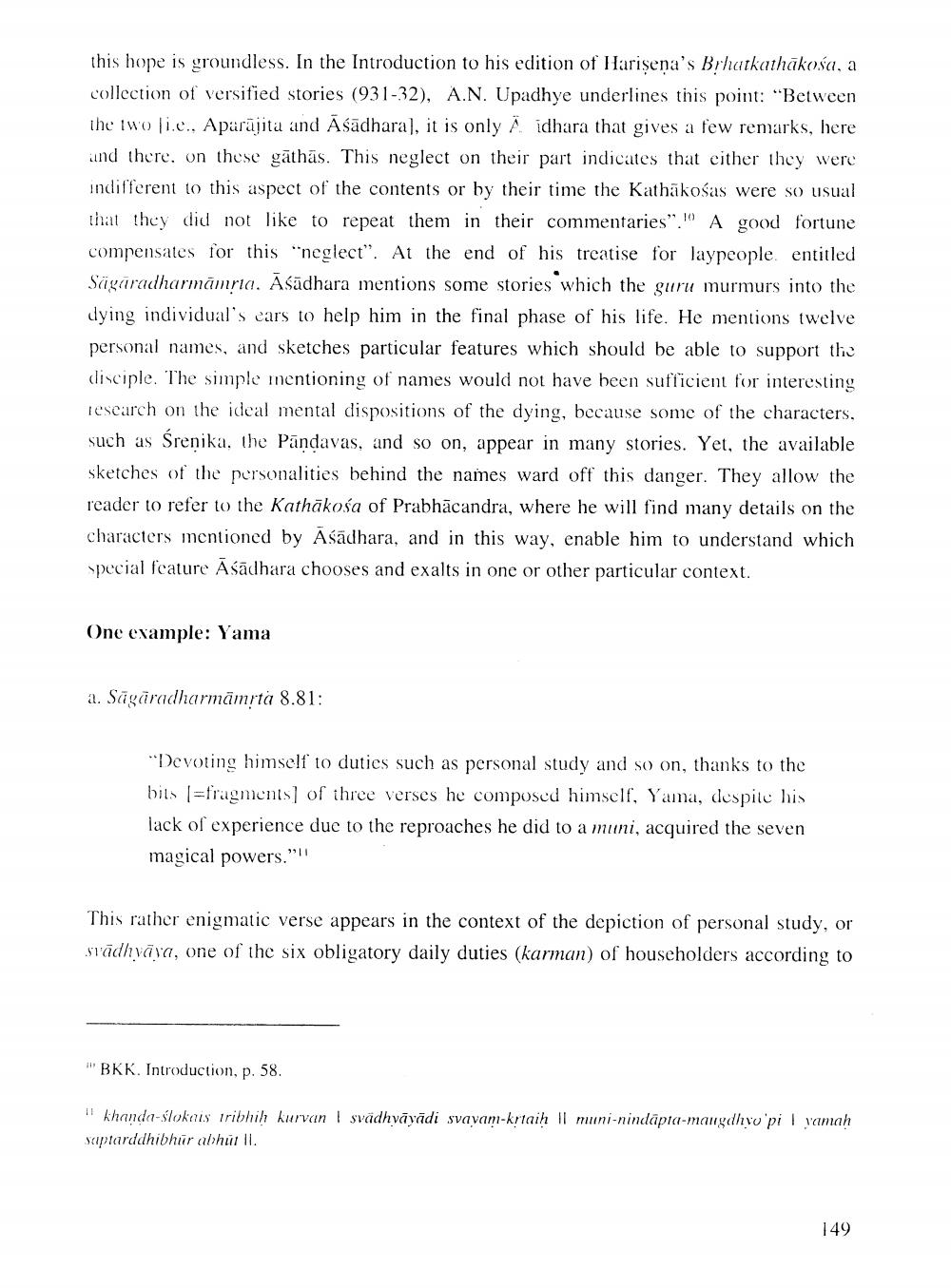________________
this hope is groundless. In the Introduction to his edition of Harişena's Bihatkathākoša, a collection of versified stories (931-32), A.N. Upadhye underlines this point: "Between the two lie., Aparajita and Āsādhara), it is only Ä idhara that gives a few remarks, here and there, on these gāthäs. This neglect on their part indicates that either they were indifferent to this aspect of the contents or by their time the Kathäkośas were so usual that they did not like to repeat them in their commentaries"!" A good fortune compensates for this "neglect". At the end of his treatise for Jaypeople. entitled Sägäradharmāmria. Āsādhara mentions some stories which the guru murmurs into the dying individual's ears to help him in the final phase of his life. He mentions twelve personal names, and sketches particular features which should be able to support the disciple. The simple mentioning of names would not have been sufficient for interesting research on the ideal mental dispositions of the dying, because some of the characters, such as Śrenika, the Pandavas, and so on, appear in many stories. Yet, the available sketches of the personalities behind the names ward off this danger. They allow the reader to refer to the Kathākośa of Prabhācandra, where he will find many details on the characters mentioned by Asādhara, and in this way, enable him to understand which special feature Asādhara chooses and exalts in one or other particular context.
One example: Yama
a. Sāgaradharmāmrta 8.81:
"Devoting himself to duties such as personal study and so on, thanks to the bits [=fragments of three verses he composed himself, Yama, despite his lack of experience due to the reproaches he did to a muni, acquired the seven magical powers."
This rather enigmatic verse appears in the context of the depiction of personal study, or stādhvara, one of the six obligatory daily duties (karman) of householders according to
BKK. Introduction, p. 58.
" khando-slokas tribhih kurvan suptarddhibhir abhüril.
svadhyāyādi svavam-krtaih Il muni-nindapla-manghyo'pi
yamah
149




